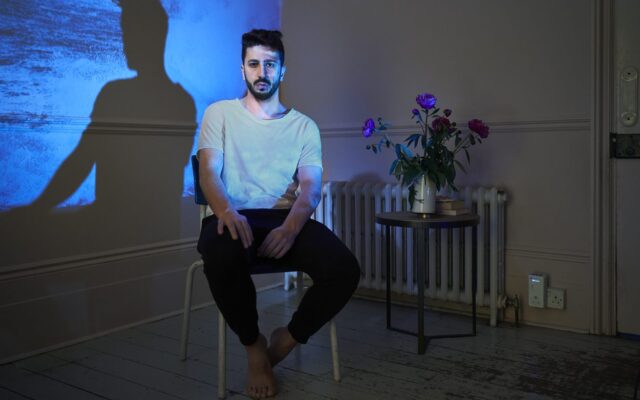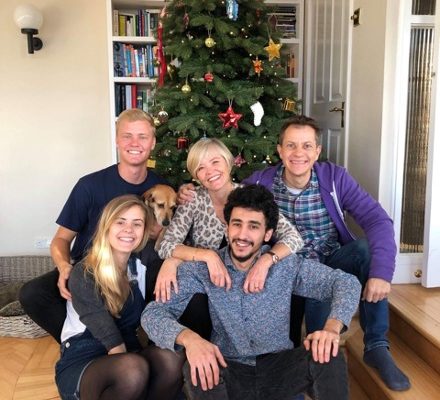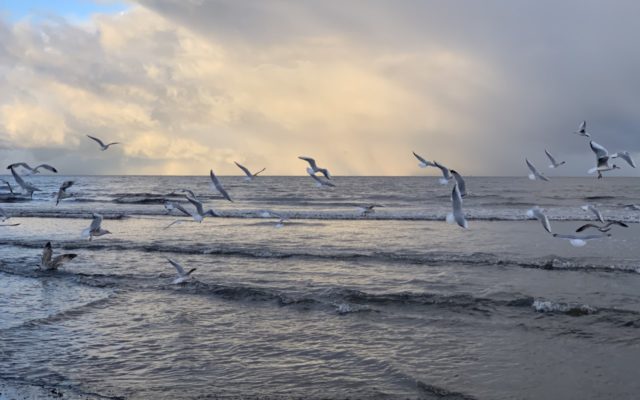Refugees should not be classified as ‘what are you’, but rather ‘what’s within you’
Iranian refugee and filmmaker Samin Saadat discusses his journey to find his identity – an identity he had hidden away for so long.
12.09.2022
I was born in Tehran, Iran, in 1990 into a family of Bahá’is, a historically persecuted group. Since the revolution in the ‘70s, being a member of the Baha’i Faith makes life significantly harder – Baha’is in Iran continue to face physical and systematic persecution. At the age of 8, my family and I left our home in hope of creating a better life.
One of the key reasons we fled was a systematic ban on higher education. Education is a fundamental human right, and to have that taken away for any reason is devastating.
My Mum wanted us to have a bright future, to study at university and make something of ourselves, so we left Iran to seek asylum in Istanbul, Turkey. Though we were lucky to have family friends in Turkey it didn’t stop us from having to move town to town every few days.
It was 5 in the morning, bitterly cold, and we were waiting outside to be picked up before going to the home of a friend of the family we had been staying with. To us, they were complete strangers yet they showed us so much love and care. They didn’t speak Farsi, so they would speak broken English with my mum and would just about get by.
We registered with the UN and then had to move again to a very small town. We arrived late at night by coach, not knowing a single person, so my mum went to a police station to ask if they knew any Baha’i families. After a few hours of waiting a kind Baha’i family arrived at the police station. They took us in and gave us accommodation, until we could find a place to stay ourselves, a place we would call home wasn’t a hostel or hotel room. We had nothing but I still believe we were much luckier than most.
We spent the next year and a half sleeping in basements and cramped spaces. I didn’t go to school for the entire time we were in Turkey but even so I learnt Turkish fluently allowing me to help my mum.
I realise now the innocence I had as a child, even though we lived in a dire state, I was fed and I was warm, I had no idea the of the hardship or importance of our journey. This was the only life I knew at the time, I can’t imagine what my Mum went through and what she did for us.
After nearly 2 years, we were resettled to the UK through UNHCR. We arrived in Essex, where kids would shout, “You’re a refugee!” when walking down the street with my Mum, as if it was an insult. After a while it became just that, an insult.
When I got to school, I was marginalised, bullied and many teachers made little effort to support me. I quickly began to feel isolated, and an outcast. This feeling ate into me and made me feel ashamed of my own culture. In order to fit into this new society, I felt I had no choice but to disconnect myself from being Iranian.
As a teenager I knew I wanted to be in the media and arts industry, and decided to go into filmmaking. I studied film at university, graduating with a first class degree. I made every possible experience worthwhile, because I knew what the purpose of making that difficult journey all those years ago was. Getting an education was such a fundamental part of our beliefs, I wasn’t going to squander that opportunity.
As a young adult I pursued a career in filmmaking, working for companies like BBC, ITV and Channel 4. Slowly I progressed into more senior roles producing and managing projects, short films, music videos for artists like YungBlud, B Young, Lang Lang and commercials for brands like RedBull. However, during a conversation with my wife during lockdown, she turned around and said: “I think you need to stop helping other people tell their stories and start telling your own.”
This led me on a journey to find my identity – an identity I had hidden away for so long. I grew up hating my culture, and believed that everything associated with it was wrong. If I was viewed as a refugee, I could link it back to how I felt all those years ago. It automatically made me think of negative connotations: feeble, unwanted, uneducated – I realise now that this is not the case.
I want to grab the idea of being a refugee and own it. I want people to know that being a refugee never made me any less of a person or any less able to achieve my goals and dreams.
Looking back, it makes me sad that I’ve missed out on so many years of being my true self, owning my heritage and feeling like I didn’t belong anywhere.
So with my wife’s words in the forefront of my mind, I’ve written two short films which I will be creating in the coming months, stories which try to change perceptions of race and culture within society. Much like the journey my family made from Iran to the UK, I am now making a similar journey within myself to rediscover who I am, utilising the education that my parents fought so hard for.
Refugees should not be classified in terms of ‘what are you’, but rather ‘what’s within you’. There’s a beautiful quote from Baha’i faith which I think fits very well; “Regard man as a mine rich in gems of inestimable value. Education can, alone, cause it to reveal its treasures, and enable mankind to benefit there from.” – Baha’u’llah






